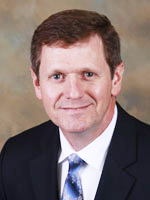Is Tubal Ligation Indicated
Question
I am 28 years old and pregnant with my 4th child. I have chronic kidney stones and currently have one 1 cm in my right kidney. I also have hydronephrosis in both kidneys, but my right is much worse than my left. My last two pregnancies have put my kidneys at risk. My husband thinks I should have a tubal ligation for the sake of my kidneys. My last two pregnancies we have just prayed our way through.
Do you think future pregnancies will continue to be risky for my kidneys and would I qualify for a tubal ligation under the principle of double effect?
Janelle
Answer
Last Updated: May 2, 2022
I’m very sorry that you are put in this difficult circumstance, but rest assured that difficult circumstances are often occasions to practice heroic virtue.
I understand that your intention here is good and noble. You are trying to avoid placing your health or life at risk in order to be able to fulfill your responsibilities to your family for years to come.
I will not comment in detail about whether a future pregnance will place your kidneys at risk. I do not have a clear understanding from your E-mail of what is causing your hydronephrosis, or why your kidney stones can’t be treated if they are the source of the problem. I would recommend you confer with your urologist and OB about correcting the problem; and if it cannot be corrected, then a detailed discussion should be had about the risk posed by future pregnancies. Don’t be afraid to request a second opinion.
I will assume for the sake of addressing the moral question you pose that a pregnancy would pose a significant risk to your health or life.
The principle we use to answer this question is this: a good end, no matter how noble, cannot be used to justify a means to that end that is in itself bad. The principle of cause and double effect is used only if the means used (in this case, the tubal ligation) is not in itself bad. Thus, a means that is itself good, or at least morally neutral, can be used to obtain a good end, even if something bad also happens as a result (that’s the double effect), as long as certain criteria are met.
The problem in your situation is that the action you are considering (the “means”) is not good (or morally neutral) in itself–tubal ligation (as with all sterilization procedures) is always morally evil, so the principle of cause and double effect does not apply.
I would encourage you to educate yourself and your husband about modern Natural Family Planning. It is easy to learn and very effective for preventing pregnancy when such is necessary.
May God bless and reward your faithfulness in these difficult circumstances.
John Gisla, MD
Answered By:

John Gisla, MD
Read more related questions
If I Missed a Shot Could I Get Pregnant?
I didn’t go for my injection the 4th of May. Is it possible for me to get pregnant?
The Pill: Class One Carcinogen
Ever since I heard that the birth control pill and other contraceptives were declared Level One carcinogens by the WHO at the “Spirit and Law…
The Pill to Regulate Cycles—Why Not?
I’ve had irregular periods all my life. I went to several doctors who only told me to wait it out for a couple of years…
What to Expect After 24 Years on the Pill
I am a 42 year old female and I have been on birth control since I was 18 years old. I recently stopped taking them…
How Long to Get Back to Normal After Stopping the Pill
I was just wondering what are the normal processes after coming off the pill? I decided to come off the pill because I was getting…
Post Pill and Unexplained Weight Gain
I went off the birth control pill in April, five months ago. I had been on the pill since I was 15 years old. I…
Is Tubal Ligation Indicated
I am 28 years old and pregnant with my 4th child. I have chronic kidney stones and currently have one 1 cm in my right…
Birth Control Pill Rollercoaster
I have looked at the question(s) regarding stopping BCP and the side effects, but I guess my worries aren’t about the ovulation, but rather the…
No Birth Control Pill Has Worked For Me
I have been on birth control since I was like 16. Every birth control I have been on, works for like a month and then…
Worried About Long Term Effects of My Birth Control
I am 18 years of age and just recently started having sex. My boyfriend and I came to a consensus that I start the Pill.…
Regret Yesterday’s Depo Injection
Hi, I had a question. I just received my first shot and last shot of Depo-Provera yesterday afternoon, and I read up on it all…
Disagree on Vasectomy
I am a 36 year old mother of four children, ages 12, 8, 5 and 18 months. My husband and I have been married for…

